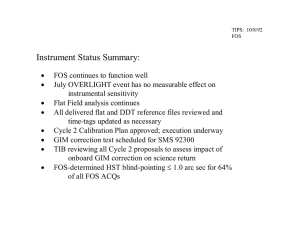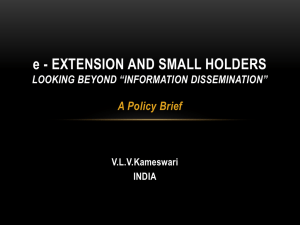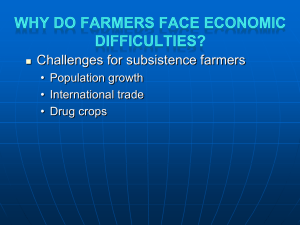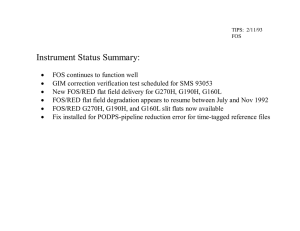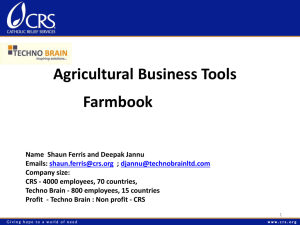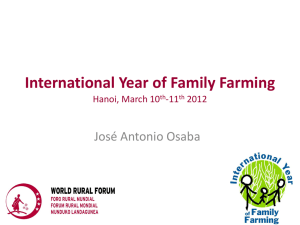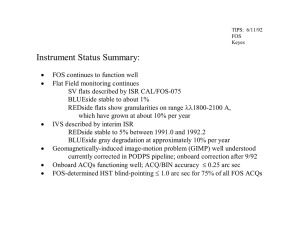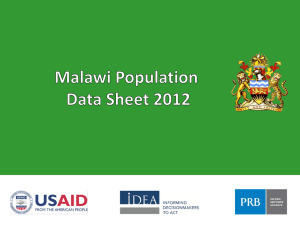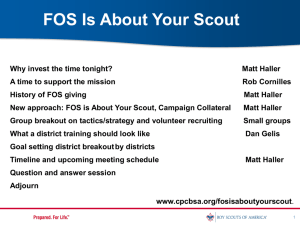gender equity and farming organisations in Malawi
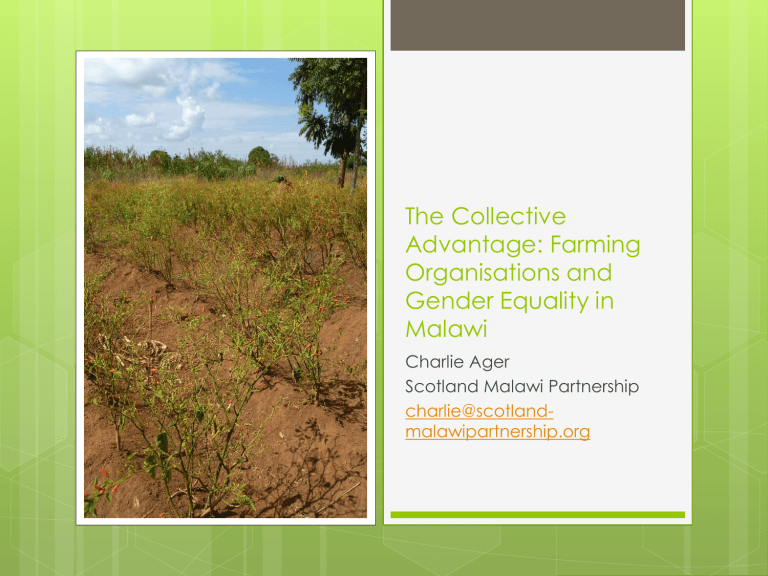
The Collective
Advantage: Farming
Organisations and
Gender Equality in
Malawi
Charlie Ager
Scotland Malawi Partnership charlie@scotlandmalawipartnership.org
An agrarian economy
Increasing agricultural productivity is a key pillar in Malawi’s economic development and poverty reduction strategy
The Malawi Government’s Growth and
Development Strategy recognises
‘agriculture [as] the single most important sector of the economy’ (GoM, 2006:13).
Gender disparities
Indicator
Proportion of land ownership
Proportion of farm labour
Proportion of income from farm labour
Women
3%
70%
20%
Men
97%
30%
80%
Source: OPC, Gov of Malawi, 2009
Benefits of women’s participation
1.
Improving agricultural productive capacity
1.
raising women’s social status
Role of Farming Organisations
(FOs)
FOs offer a model of addressing such issues
While the impact of FOs in mobilising agricultural productivity among smallholder farmers is generally well established, their impact on women’s engagement and empowerment has been less thoroughly examined.
Research questions
What are the perceived barriers which limit women farmers’ full participation in the
Malawian agricultural sector?
Does membership to a farming organisation address these barriers?
Methodolgy
17 key informant interviews
government officials
non-governmental advisors
FO lead farmers
5 focus groups with women engaged with
FOs
farmers clubs
poultry, coffee and bee producers cooperatives
Barriers to participation identified by women farmers 1:
Structural barriers
Inequitable land ownership
Restricted land control
Barriers to participation identified by women farmers 2:
Material barriers
Minimal and irrelevant extension services
Shortage of credit
Limited market access
Barriers to participation identified by women farmers 3:
Socio-cultural barriers
Triple roles
Educational opportunities
Collective advantage of FOs
1: material barriers? securing economies of scale
Available and relevant extension services
Access to agricultural assets
Identifying markets
Collective advantage of FOs
2: socio-cultural barriers?
Building social capital and leadership opportunities
Social cohesion and trust
Leadership through democratic structures
Advocacy rolecommunity development
Collective advantage of FOs
3: structural barriers?
Membership by User
Rights, not Land Tenure
Opportunity of reformed membership criteria
Obstacle of fees
Land reform
‘the one who has land has life’
Land Reform
The Malawi National Land Policy approved,
2002
Land Amendment Act drafted in 2004
President Joyce Banda, April 2012
“In the coming fiscal year, Government will scale up women economic empowerment activities by facilitating transition of women business groups into cooperatives to make them commercially viable; and intensifying efforts of linking the groups to industries, viable markets and financing services. Mr.
Speaker, Sir, very soon, I will be launching the
Presidential Initiative on poverty and hunger reduction which will among other things mobilise women to form cooperatives to grow cash crops.”


